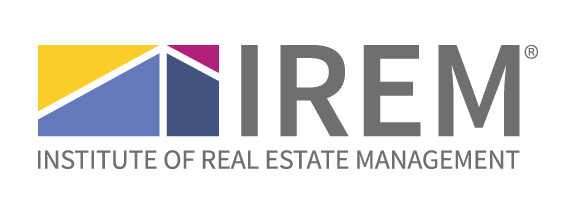Explore Careers Building Communities to learn more about Careers in Real Estate!

Appraisal & Consulting
Appraisers are paid to estimate the value of a property after a systematic analysis of the prices paid for similar properties, or based on an analysis of discounted future cash flows. This valuation estimate requires market analysis and extensive research. Some appraisers work for a variety of clients on a fee basis; others are internal staff appraisers, producing value opinions for their employer. Most appraisers specialize in specific types of property.
In the state of Alabama, there are five categories of appraisers: Trainee Real Property Appraiser, State Registered Real Property Appraiser, Licensed Real Property Appraiser, Certified Residential Real Property Appraiser, and Certified General Real Property Appraiser. Each category has different fees, education, and experience requirements. To find out more information on how to become a certified appraiser for the state of Alabama, please visit the Alabama Real Estate Appraiser’s Board website.
Brokerage & Leasing
Real estate agents that represent buyers, sellers, owners or tenants must be licensed by the state of Alabama. Residential agents represent buyers and sellers in exchange for a fee, payable when a sale is completed. More than 33,000 of the top residential real estate professionals in the United States and overseas are members of RRC. Commercial brokerage requires a higher level of technical business knowledge. Most commercial agents have earned an undergraduate degree. Many have graduate degrees in business which enables them to work with corporations, tenants, institutional buyers and sellers, domestic and foreign business entities, and a host of sophisticated investment and business clientele. Others have earned the CCIM Designation considered by the industry as graduate-level training/education. Most commercial agents specialize in specific property types such as industrial, office, retail, hotels or apartments.
To find out more information on getting your Real Estate License by taking classes at The University of Alabama, please visit the Culverhouse Real Estate Program website. Please be aware that to get your license through courses taught at The University of Alabama, you must be admitted as a student.
To find out more information about getting your real estate license or broker license for non-university students, please visit the Alabama Real Estate Commission’s website. For more information about online courses that ACRE offers, please visit our Online Courses webpage.
Construction & Architecture
Becoming an architect or contractor requires special education, experience, and licenses. Many major architectural and contracting firms have internal business development/marketing departments. Business development in these professions entails extensive involvement and participation in multiple industry-related organizations, along with strong relationship building within the real estate industry.
Corporate Real Estate
Corporate real estate management involved maximizing the firm’s resources devoted to space needs. Corporate real estate managers are attempting to improve the efficiency of real estate usage by considering “just-in-time” office sharing and enhancing the productivity of the work environment. Corporate real estate managers deal with site analysis, buy versus lease decisions, acquisition and disposition, portfolio refinancing and sale-leaseback arrangements, property tax appeals, and a host of facility management decisions.
For more information please visit CoreNet Global, The Global Association for Corporate Real Estate.
Development
Developers are among the most entrepreneurial of the real estate players. They acquire land and prepare it for development, as well as oversee the construction process. Developers specialize in residential or commercial development, and they specialize by property size and type.
For more information about residential development, please visit the National Association of Home Builders (NAHB).
For more information about commercial development, please visit the National Association of Industrial & Office Parks (NAIOP).
Institutional Real Estate Investment
Most of today’s large-scale real estate transactions ($10 million & up) involve institutional investors among which are Real Estate Investment Trusts (REITs), the larger life insurance companies, and pension funds. These institutions utilize commercial brokers in the local markets, but rely on internal staff to review & analyze proposed investments. Institutional investors pay attention to niche market trends, tax law trends, regulatory trends, geographically based economic trends, demographic trends and global economic trends, in addition to micro-level real estate analysis.
For more information, please visit the National Institution of Real Estate Investment Trusts, NAREIT.
Mortgage & Construction Lending
Mortgage lenders specialize by the size of loans and property types. Primary lenders for residential single-family properties include mortgage companies that resell loans in the secondary mortgage market, as well as commercial banks, savings institutions, and credit unions. Bank and savings institutions pay employees on a salary plus bonus basis. Mortgage companies rely typically on productivity-based compensation. Loan officers must know about credit analysis, as well as appraisal, title, environmental concerns, and a host of other governmental regulations. Multifamily mortgage lenders act like commercial mortgage lenders with an emphasis on property analysis including market trends, tenant review, income, and expense review as well as the value of the subject property. Commercial banks and savings institutions provide most of the smaller multifamily loans while life insurance companies, REITs, and pension funds provide larger-scale financing.
Property Management
Property management involves maximizing the net operating income (NOI) of property based on managing rental flows, tenant retention, and property operation. Property operation includes cleaning, maintenance, and repairs, paying utilities, property insurance, property taxes, reporting to owners, and overseeing resident or on-site managers. Property managers are usually involved in leasing and facility management decisions. Those that manage several properties and are involved in the acquisition, disposition, financing, and portfolio management decisions are known as “asset managers.” Most property managers start as on-site managers, working closely with tenants. Property manager fees are often based on rental collections, as well as the complexity of the property management work. While in college, becoming a leasing associate of a local multifamily complex is a great entry point into the profession. For more information, visit the Institute of Real Estate Management (IREM).

Today there are more than 5 million people working in various parts of the real estate industry in the United States. Real estate has many wide-ranging careers associated with it, both directly and indirectly.

Learn about markets that interest you by using the Business Journals website. At the top left select the dropdown for “Select A City” and find out more information about popular locations.

Find out more information about the REALTOR 30 Under 30 Honorees for current and previous years.

The changing of the guard is like the changing of generations. Each generation has its own distinctive way of approaching work and life and judging how to balance its priorities. Broadly, millennials care more about integrating community service into their careers, while baby boomers focused more on their careers and families.
Commercial Investment Real Estate recognizes 10 designees who are successfully navigating an industry experiencing relentless change while adhering to their core beliefs of personal growth, service, and community.
Look for these 10 CCIMs to continue changing the face of the commercial real estate industry. They exemplify the change in generational values and culture for the profession.

The 30 Under 30 program, recognizes 30 exceptional professionals under the age of 30 who are the next generation of leaders who have already made a significant impact on the industry and in their communities. Their various contributions to the profession are demonstrated through career success, professional leadership, and community involvement.

This website uses cookies to collect information to improve your browsing experience. Please review our Privacy Statement for more information.